STATEHOUSE REPORT | ISSUE 22.44 | Nov. 3, 2023
BIG STORY: Jail deaths in Charleston, Columbia lead to federal probe
NEWS BRIEFS: Sandifer denies ethics allegation
LOWCOUNTRY, Ariail: Dysfunctional
COMMENTARY, Brack: If the water doesn’t get you, the heat might
SPOTLIGHT: S.C. Education Association
MY TURN, Saul: What have I learned?
MYSTERY PHOTO: Still the same
FEEDBACK: Send us your thoughts
Jail deaths in Charleston, Columbia lead to federal investigation
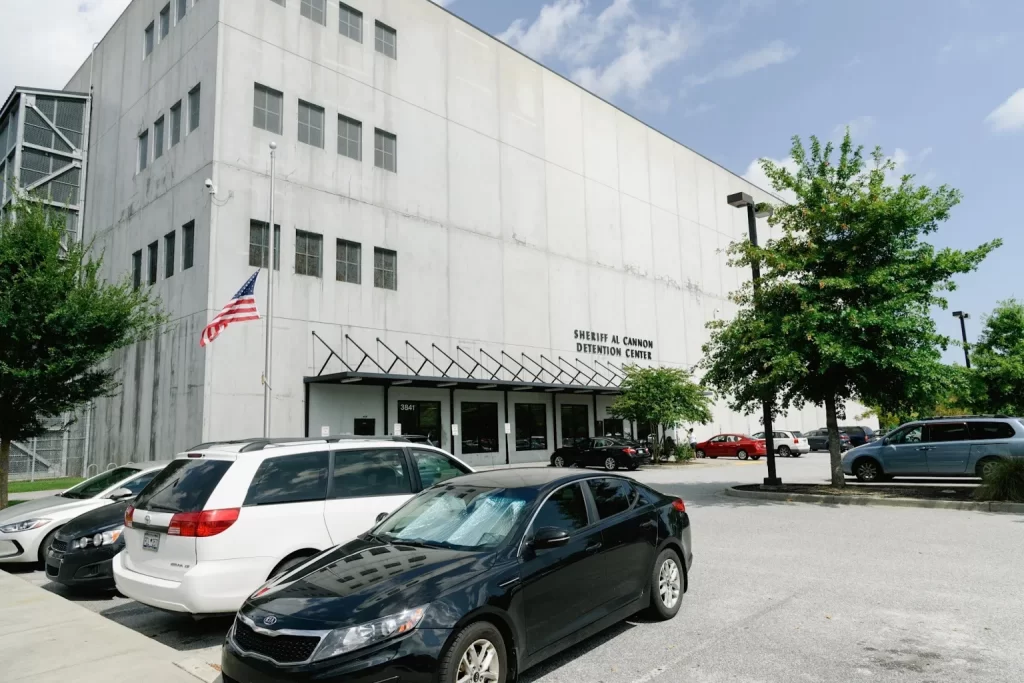
Staff reports | In a story that is making national headlines, the U.S. Justice Department says it is investigating jails in Richland County and Charleston County after several deaths that are believed to have resulted from use of force, medical neglect and assaults by inmates.
“Based on an extensive review of information that is publicly available or that we have received from stakeholders, we find significant justification to open these investigations now,” said U.S. Assistant Attorney General Kristen Clarke.
The investigations are an answer to calls of local advocates and politicians who have increasingly decried the conditions at both facilities and requested a federal investigation, which can identify systematic issues and impose broad reforms.
The department’s civil rights division cites eight recent deaths at the Al Cannon Detention Center in North Charleston and six at the Alvin S. Glenn Detention Center in Columbia.
The investigation of the Al Cannon Detention Center will focus on access to medical and mental health care, the use of solitary confinement and the use of force by staff, while the investigation into the Alvin S. Glenn Detention Center will examine whether the jail failed to protect incarcerated people from violence and subjects incarcerated people to dangerous living conditions at the jail.
In a statement, Charleston County Sheriff Kristin Graziano reminded that her office encouraged an investigation in March.
“I stand behind the work of my employees,” she said. “They are the hardest-working people in this county. The work that they do keeps us all safe. I will be the first person to welcome any member of the Department of Justice to my facility, and I believe that we are going above and beyond our call of duty to provide assistance on mental health concerns. I also invite the elected officials of South Carolina to do their job and do their part to stop the dumping of the mentally ill in jails.”
- Have a comment? Send to: feedback@statehousereport.com
Sandifer denies ethics allegation
Staff reports | An ethics case involving S.C. Rep. William Sandifer, a Seneca Republican who chairs the House Labor, Commerce and Industry Committee, reportedly has been forwarded to Richland County prosecutors after a state agency said the allegation was outside of the state’s four-year statute of limitations.
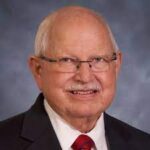
Sandifer denied any wrongdoing, according to The Post and Courier.
The Ethics Commission is said to have found probable cause but declined to take action because the statute of limitations expired on an allegation raised by a Rock Hill body shop owner. According to published sources, the man said he was asked more than four years ago for a campaign donation in exchange for a hearing on an insurance bill.
In other South Carolina News:
S.C. justices want more info on lethal injection drug before widespread use. The S.C. Supreme Court isn’t ready to allow the state to restart executions after more than 12 years until they hear more arguments about newly obtained lethal injection drugs as well as the firing squad and electric chair.
S.C. Ports to pay $9.9 million to developer. The S.C. State Ports Authority has officially parted ways with developer Lowe, the Los Angeles-based real estate group that worked to create a plan to develop Union Pier. The cost: S.C. Ports will pay $9.9 million for a contract termination fee, but will retain all of the work that was produced under the agreement, such as planning and zoning documents and conceptual drawings. In June, the ports agency paused the project and shelved Lowe’s controversial plan to prioritize more community input.
Biden taps Austin for federal judgeship. President Joe Biden nominated federal Magistrate Judge Jacquelyn Austin of Greenville to become the next U.S. District Court judge in South Carolina. She would fill a post held by Michelle Childs, now an influential judge on the federal D.C. Circuit Court of Appeals.
10 GOP candidates to be on S.C.’s presidential primary ballot. The Republican field in the coming 2024 presidential election is packed, with two last-minute filers and a couple notable names missing. Meanwhile, former S.C. Gov. Nikki Haley is rising as a GOP alternative to former President Donald Trump, according to Politico.
S.C. public bodies often abuse public meeting protocol, state law shows. Citizens have the right to observe actions made by public officials in an open forum under South Carolina’s Freedom of Information Act. However, there are times when public bodies abuse their power because of a lack of accountability.
Dysfunctional
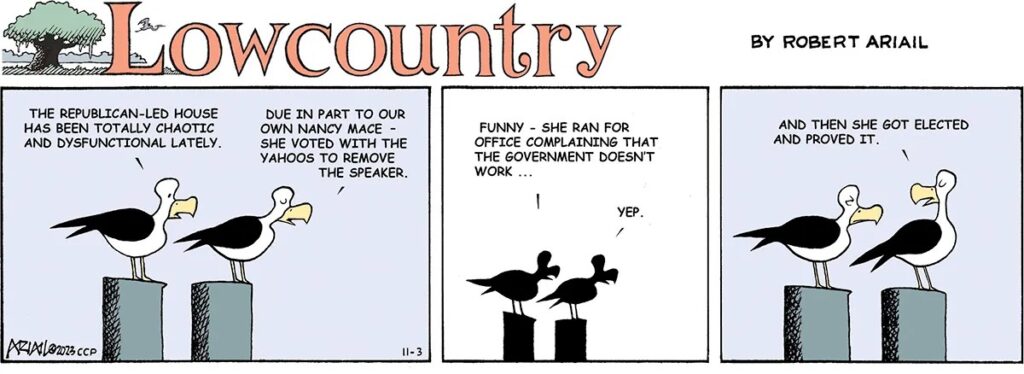
Award-winning cartoonist Robert Ariail generally has a biting or funny comment about the great state of South Carolina in his weekly cartoon. This week, he skewers U.S. Rep. Nancy Mace, R-S.C., for complaining about how government doesn’t work – and then proving it by ousting the House speaker.
- Love the cartoon? Hate it? What do you think: feedback@statehousereport.com.
If the water doesn’t get you, the heat might

By Andy Brack | More people are accepting the realities of climate change as summers are hotter, wildfires are increasing, and water temperatures are warmer. Flooding, particularly along the Lowcountry, is getting worse.
 But if we don’t start doing something about it, which former Vice President Al Gore has been warning about for more than two decades, our planet faces peril as glaciers melt, coastlines change and temperatures soar. Just this summer, the ocean around Key West was more than 100 degrees Fahrenheit.
But if we don’t start doing something about it, which former Vice President Al Gore has been warning about for more than two decades, our planet faces peril as glaciers melt, coastlines change and temperatures soar. Just this summer, the ocean around Key West was more than 100 degrees Fahrenheit.
The Lowcountry is the canary in the coal mine for the impacts of climate change.
“The longer we burn fossil fuels, the hotter it will be, and what we’ve seen this last summer will get worse,” said noted science author Jeff Goodell in a recent interview. He’s a Texan who explored the impact of rising air temperatures in The Heat Will Kill You First: Life and Death on a Scorched Planet. He also is part of a Nov. 10 panel discussion at the Charleston Literary Festival that probes how Charleston is especially vulnerable to rising global temperatures and seas.
Summertime is lasting longer and becoming more severe, he said.
“Heat changes how we think about what summer means,” he said. “Summer becomes this time where we all live more like a vampire — you’re indoors in the day” in the air-conditioning. Summer heat, in fact, is already changing behaviors — from roads being built at night to people exercising before sunrise or after sunset.
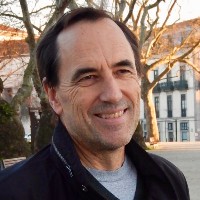
Goodell emphasized heat is an immediate risk to people’s lives and it can kill quickly by dehydrating and causing stress on the body. But rising seas – a byproduct of rising temperatures –are a longer-term issue that cause more impact to infrastructure, he said.
“Sea-level rise is an infrastructure risk,” Goodell said. “No one is standing on the beach on one of the outer islands and drowns because sea-level rise is coming up too fast.”
Rising waters are slow – and when they ebb, people often forget about them, particularly when a sunny Chamber of Commerce day comes immediately after.
Dale Morris, chief resilience officer for the city of Charleston, says that too often, people don’t consider the crippling impact of water in a low area like Charleston.
“People think storm surge isn’t a problem in Charleston,” said Morris, who also is part of the Nov. 10 panel discussion. “It is, in fact, the highest risk we face.”
Morris said people need to start talking about the issues of heat, water and the Lowcountry’s changing weather. He pointed to recent flooding of city streets during Tropical Storm Idalia, which hit Charleston during a king tide.
“That type of disruption happens four or five times a year — it used to happen once every five years,” he said, adding that by 2050 it could happen 16 to 25 times a year if nothing changes.
Goodell, who also has written a book on flooding, emphasized how heat will sneak up on you, unlike rising water.
“One of the things that a place like Charleston has to think about is the divide between the people who have air-conditioning and the people who don’t – outdoor workers, farm workers, delivery workers. And anybody who has any kind of health condition is so much more vulnerable to heat.”
Cities like Charleston and Austin, where Goodell lives, are in the belly of the beast of climate change because they’re getting hit from different weather-related directions – from rising seas, heat and flooding in the Holy City to tornadoes and extreme heat in Austin.
“If you asked me what are the places in the United States most at risk from changing climate, I would put Charleston right at the top of the list.”
He added that the problems faced by cities like Charleston need to be viewed more broadly.
“This is a political problem and a problem of governance and how we’re going to invest in preparing the city for this climate that’s coming,” he said. “The scale of the challenges that a place like Charleston faces is far beyond what a city council can deal with.”
Andy Brack is editor and publisher of Statehouse Report and the Charleston City Paper. Have a comment? Send to: feedback@statehousereport.com.
The S.C. Education Association
 The public spiritedness of our underwriters allows us to bring Statehouse Report to you at no cost. This week’s spotlighted underwriter is The South Carolina Education Association(The SCEA), the professional association for educators in South Carolina. Educators from pre-K to 12th grade comprise The SCEA. The SCEA is the leading advocate for educational change in South Carolina. Educators in South Carolina look to The SCEA for assistance in every aspect of their professional life. From career planning as a student to retirement assessment as a career teacher, The SCEA offers assistance, guidance, and inspiration for educators.
The public spiritedness of our underwriters allows us to bring Statehouse Report to you at no cost. This week’s spotlighted underwriter is The South Carolina Education Association(The SCEA), the professional association for educators in South Carolina. Educators from pre-K to 12th grade comprise The SCEA. The SCEA is the leading advocate for educational change in South Carolina. Educators in South Carolina look to The SCEA for assistance in every aspect of their professional life. From career planning as a student to retirement assessment as a career teacher, The SCEA offers assistance, guidance, and inspiration for educators.
- Learn more: TheSCEA.org
What have I learned?

By Dr. Robert Saul | When I recently retired at the end of 2020 from the clinical practice of medicine, after 44+ years of practice, I must admit that I was somewhat disoriented. I didn’t have to get up before sunrise to start my commute. I wasn’t listening to NPR to start my day. I, all of a sudden, was not an integral part of a team providing care and support to children and families that sought our expertise and care. And I missed it.
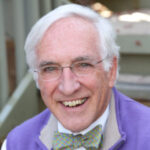
I was not being a pediatrician, medical geneticist, administrator, educator or mentor anymore. If the families that I saw derived some benefit from my care over the course of my career, I had to acknowledge that I derived even more benefit from my interactions with them. I was a first-hand witness to remarkable children and families–their trials, their tribulations, their emotional rollercoasters and their resilience. I learned so much from them that I did not want to forget my learning experiences.
I found myself reflecting about the then close to 50 years since college. Over the last 30 years, I have been sharing various articles in the local newspaper and via my other writings but most of those latter communications have not been professional in nature. Fifty years seems like a long time and given that length of time, I should have some lessons learned that might be worth sharing in my roles of pediatrician, medical geneticist, educator, administrator and author.
After retirement, I was asked to write an article about my professional journey. When I was completing that, I took the time to highlight five lessons learned. As I detail them below, I also realize that these lessons have applicability to all of our social interactions [in italics below] and that every day is a new day to learn and improve.
Trust the intuition of parents. Parents are with their children more than I am, they know their children the best, and their concerns are real and provide valuable insight for the evaluation and potential treatment. This was a very difficult lesson for me to learn. Newly minted doctors often think they have all of the answers based on their seemingly endless years of education. Yet, young doctors have only begun their education. We need to trust and believe what people are telling you. Granted, my professional expertise can pick up unrecognized things that parents don’t see but to ignore the gut reactions of parents is to be at your own peril and is often to the detriment of your patients. [Trust the intuition of your family members and those in your social circles. Allow their ideas and thoughts to be expressed when they speak from their heart. Their observations can be eye-opening and humbling. And humility is one of the finest of human traits.]
Listen…Listen intently. It sounds so simple to do but, in reality, is so hard at times. We seem to be listening but are we really? Active listening requires us to put aside the multiple distractions (including our computers), turn to the patient, and let them know that their issue is now your issue. We need to be less box-checking for the computer and more empathetic-listening to our patients. [Listen intently to your children, family members, friends and fellow citizens. Only then can we share in our pursuit of the common good and the changes needed. It tends to make us less selfish and more selfless in service to others. And this has become a life-long pursuit for me, one in which I need to improve everyday.]
Leave your biases at the door. Before doctors see patients, we review a variety of materials. These materials might provide valuable background material, but they might also provide information that can mislead us going forward. It is critical to be open-minded when seeing patients to assist in their physical and emotional needs as our assessments and interventions progress. We might let our previous interactions taint our ability to be engaged as intently as we should. [When we have preconceived notions about others, we are less likely to be open to honest interactions. Biases, implicit or explicit, can be difficult to recognize, but when we do, it leads to more honest social interactions. Honesty and truth-telling are the only way to develop trust in our relationships with others. “Trust me” only works when others can actually trust you.]
Smile and engage. A smile is the universal symbol of shared humanity and demonstrates a willingness to engage with our patients. It does not diminish our professionalism, rather I think that it enhances it. It shows that we care. Smiling was so difficult during the pandemic with the masks, but there are other parts of our face and our voice that transmit a smile other than your teeth and upturned corners of your mouth. Learn to use all of those parts when engaged with others. [A smile can light up a room and show that we are willing to engage with others. It has taken me too many years to learn that the big, toothy smile of my mother was such an example. She was there – engaged and concerned when talking with others.]
Remember our shared humanity. We could just as easily be on the other end of any medical encounter. As I have aged and had more than my fair share of medical encounters, I really appreciate the need to understand how patients feel and how I can make their experience more pleasant. I have welcomed it when medical providers have done the same for me. [Family and social interactions should always involve empathy (the ability to understand and share the feelings of another). Only then can we genuinely understand others and be understood. Being present is such a unique skill and so important as we seek to help others in every way, every day.]
One does not need to finish a career to make reflections like those above, but I must admit that retirement is a great inflection point for such observations. As we age, I plan to be a sage as much as possible. And instead of being elderly, I want to be a trusted elder and continue to make pertinent suggestions that can be of some benefit—to myself and hopefully others. Then I will feel that I have lived a life worth living, full of humility, sincerity and vulnerability as selfless as possible. I am not perfect, nor will I be. I just want to be worthy of setting an example for my children, my grandchildren, my patients and their children, and all children – my children’s children.
Dr. Robert A. Saul is a retired pediatrician and the author of “My Children’s Children: Raising Young Citizens in the Age of Columbine” and “All About Children.”
Still the same
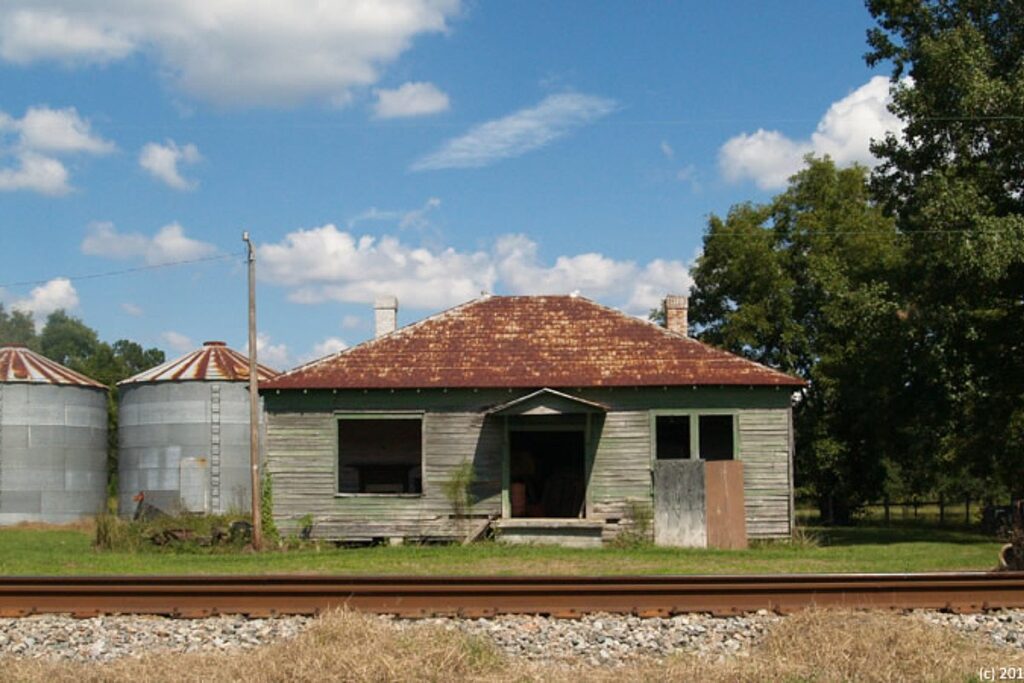
This is one of our favorite pictures of rural South Carolina. We snapped it more than nine years ago somewhere in South Carolina and, according to Google maps, it looks almost exactly the same today. Where is it? Send us your guess of what this photo shows – as well as your name and hometown – to feedback@statehousereport.com.
 Last week’s mystery photo, “Dizzying,” is an “elaborate spiral staircase at the Nathaniel Russell House, located at 51 Meeting St in Charleston,” writes sleuth Allan Peel of San Antonio, Texas. “It was originally built in 1808 by Nathaniel Russell (1738 – 1820), a highly successful Rhode Island shipping merchant and slave trader who first moved to Charleston in 1765 to capitalize on the city’s bustling seaport. … The property changed hands a few times after that, and was eventually purchased by the Historic Charleston Foundation in 1955 in order to preserve the house and open it to the public as a museum.”
Last week’s mystery photo, “Dizzying,” is an “elaborate spiral staircase at the Nathaniel Russell House, located at 51 Meeting St in Charleston,” writes sleuth Allan Peel of San Antonio, Texas. “It was originally built in 1808 by Nathaniel Russell (1738 – 1820), a highly successful Rhode Island shipping merchant and slave trader who first moved to Charleston in 1765 to capitalize on the city’s bustling seaport. … The property changed hands a few times after that, and was eventually purchased by the Historic Charleston Foundation in 1955 in order to preserve the house and open it to the public as a museum.”
Others who correctly identified the three-storey staircase were George Graf of Palmyra, Va.; Daniel Prohaska, Frank Bouknight and Sybil Ludington, all of Summerville; Jean Prothro, Jay Altman and Elizabeth Jones, all of Columbia; Bill Segars, Don Clark and Michael Webb, all of Hartsville; Jacie Godfrey and Barry Wingard, both of Florence; Penny Forrester of Tallahassee, Fla.; Katherine D. Beard of Camden; and Pat Keadle of Wagener.
- >> Send us a mystery picture. If you have a photo that you believe will stump readers, send it along (but make sure to tell us what it is because it may stump us too!) Send to: feedback@statehousereport.com and mark it as a photo submission. Thanks.
Send us your thoughts
We encourage you to send in your thoughts about policy and politics impacting South Carolina. We’ve gotten some letters in the last few weeks – some positive, others nasty. We print non-defamatory comments, but unless you provide your contact information – name and hometown, plus a phone number used only by us for verification – we can’t publish your thoughts.
- Have a comment? Send your letters or comments to: feedback@statehousereport.com. Make sure to provide your contact details (name, hometown and phone number for verification. Letters are limited to 150 words.
- ORDER NOW: Copies are in Lowcountry-area bookstores now, but if you can’t swing by, you can order a copy online today.
- Now available as an e-book!
ABOUT STATEHOUSE REPORT
Statehouse Report, founded in 2001 as a weekly legislative forecast that informs readers about what is going to happen in South Carolina politics and policy, is provided to you at no charge every Friday.
- Editor and publisher: Andy Brack, 843.670.3996
Donate today
We’re proud to offer Statehouse Report for free. For more than a dozen years, we’ve been the go-to place for insightful independent policy and political news and views in the Palmetto State. And we love it as much as you do.
But now, we can use your help. If you’ve been thinking of contributing to Statehouse Report over the years, now would be a great time to contribute as we deal with the crisis. In advance, thank you.
Buy the book
Now you can get a copy of editor and publisher Andy Brack’s We Can Do Better, South Carolina! ($14.99) as a paperback or as a Kindle book ($7.99). . The book of essays offers incisive commentaries by editor and publisher Andy Brack on the American South, the common good, vexing problems for the Palmetto State and interesting South Carolina leaders.
More
- Mailing address: Send inquiries by mail to: P.O. Box 21942, Charleston, SC 29413
- Subscriptions are free: Click to subscribe.
- We hope you’ll keep receiving the great news and information from Statehouse Report, but if you need to unsubscribe, go to the bottom of the weekly email issue and follow the instructions.
- Read our sister publication: Charleston City Paper (every Friday in print; Every day online)
- © 2023, Statehouse Report, a publication of City Paper Publishing, LLC. All rights reserved.















 We Can Do Better, South Carolina!
We Can Do Better, South Carolina!